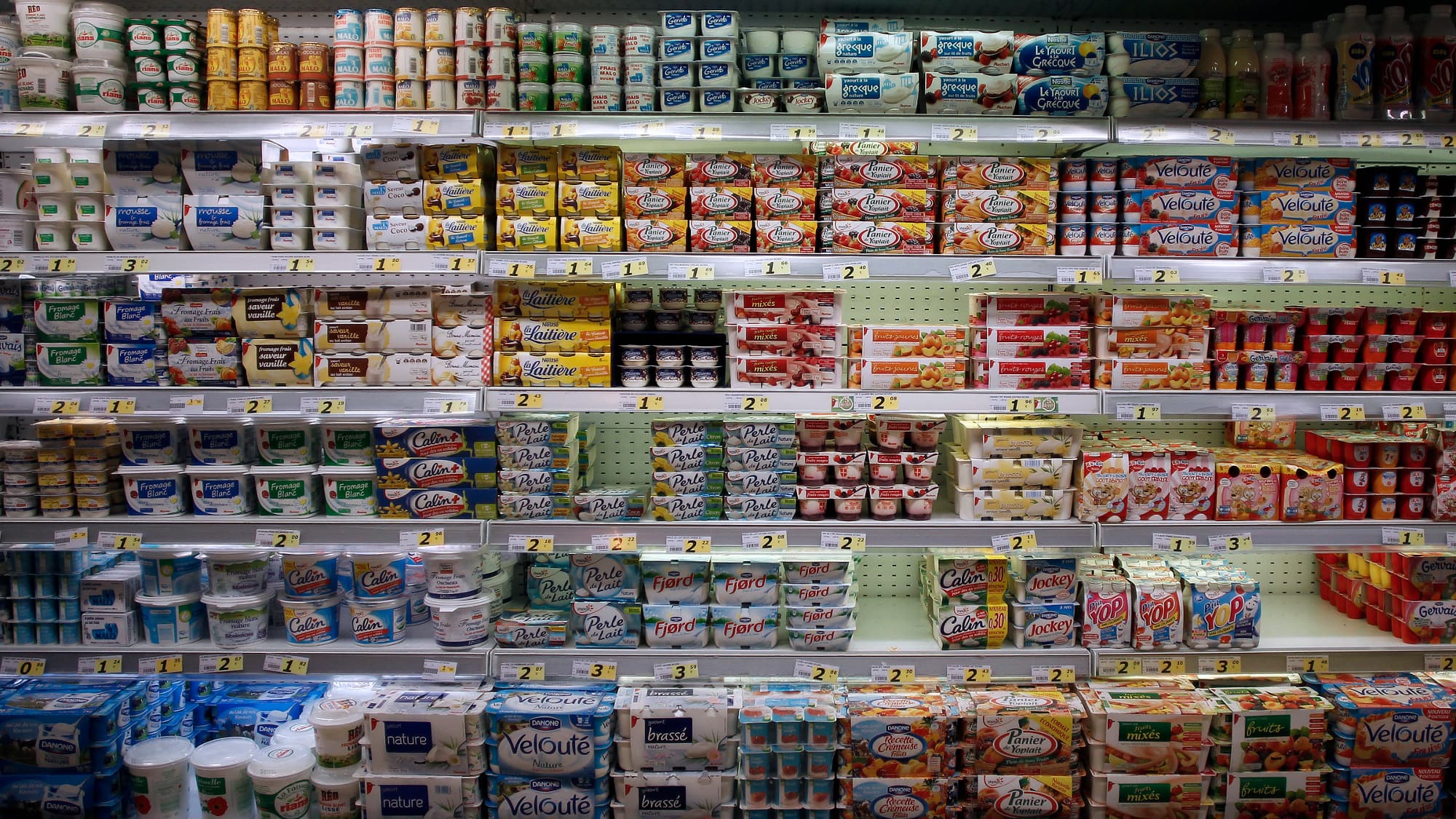As a result of rising inflation, sales of “first price” products have increased since the beginning of the year, as opposed to national brands and organic products.
In supermarket carts, the products are no longer quite the same. Inflation, which should reach 5% on supermarket shelves by the summer, is starting to have its first effects on French consumption: buyers are going down to watch their limited budgets. Specifically, some of them are giving up the national brands for distributor brands (MDD), and even within these private label products, “first price” products are experiencing favorable winds.
According to figures from panelist NielsenIQ, quoted by trade journalist Olivier Dauvers, sales of consumer products (PGC – food, hygiene, maintenance) and fresh products under national brands fell by 0.5% in the first three months of the year, while private label products increased by 0.1%. In the latter category, sales of “premium” products decreased by 3.4%, while standard products increased by 0.2%; the ‘economic’ private label in particular rose by 11%.
This is just the beginning of a downgrade, but it will set the tone for the coming months. Because this is not new: when there is a crisis, and that leads to high inflation, consumers rethink the way they shop. The same phenomenon had been observed during the last financial crisis: private labels had taken over market share from national brands. “These are communicating vessels,” notes Philippe Goetzmann, retail expert.
“For ten years, in a context of deflation and a price war between distributors that has narrowed the gap between private labels and the big brands, we have observed a more expensive purchase: the food budget of the French is stable from year to year, so a fall in prices makes purchasing power is free and we can invest more in more expensive products. Today it is the opposite there,” he emphasizes.
Food, an “adjustment variable”
Inflation in recent months has curbed the slow erosion of private labels and has boosted “first price” products, which had been neglected until then. According to a study by the E.Leclerc Observatory last February, 94% of French people bought private labels in the supermarket, and a third systematically put them in their shopping cart. Above all, the growth potential is significant: they represent about 30% of FMCG sales in France, compared to almost 50% in neighboring countries, such as Germany.
It is also the result of consumer arbitrage. “Nutrition is always the setting variable,” explains consumer expert Pascale Hébel. When you go shopping and purchasing power is limited, stick strictly to your list and give up what isn’t considered essential, such as sweets or snacks, and big brands will pay the price. We also look at his diet: less red meat, fish or cheese, and more pasta or rice.
This trend should continue “for a while”, assures Pascal Hébel. “The increase in pasta consumption observed after the 2007-2008 crisis lasted until 2016. You don’t change your diet overnight,” continues the expert, for whom it is more “the content of our plate”. that changes sustainably than the types of brands themselves.
Organic products, which are more expensive, are symptomatic of the phenomenon: according to figures from NielsenIQ, organic private label sales fell by 4.9% over the first three months of the year. “Downgrading is the first effect observed when suddenly high inflation occurs, followed by effects on volumes and distribution circuits,” notes Philippe Goetzmann. Some brands, including Lidl and Aldi on the hard discount side, or even Leclerc, which relied heavily on its own brands, could benefit.




